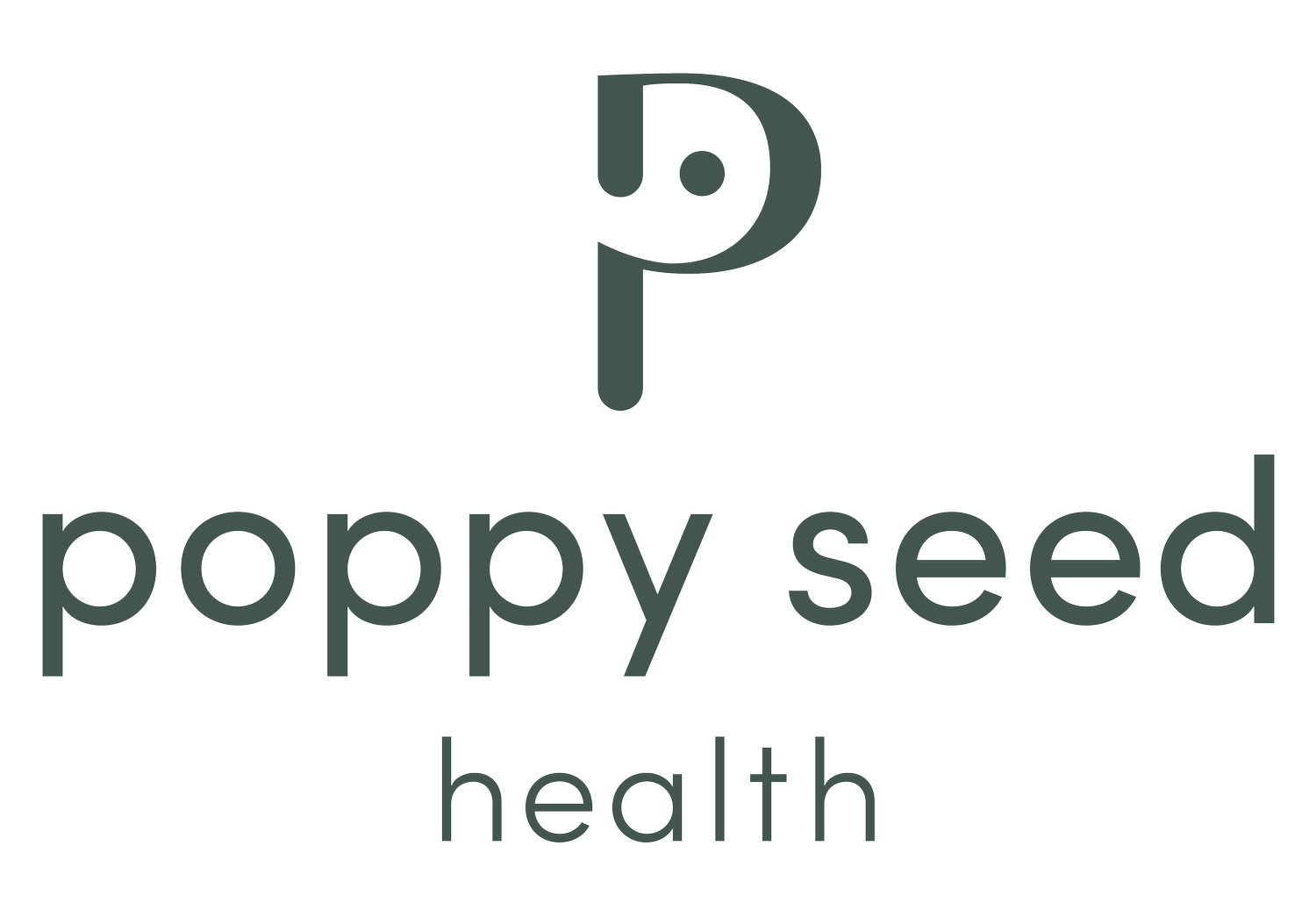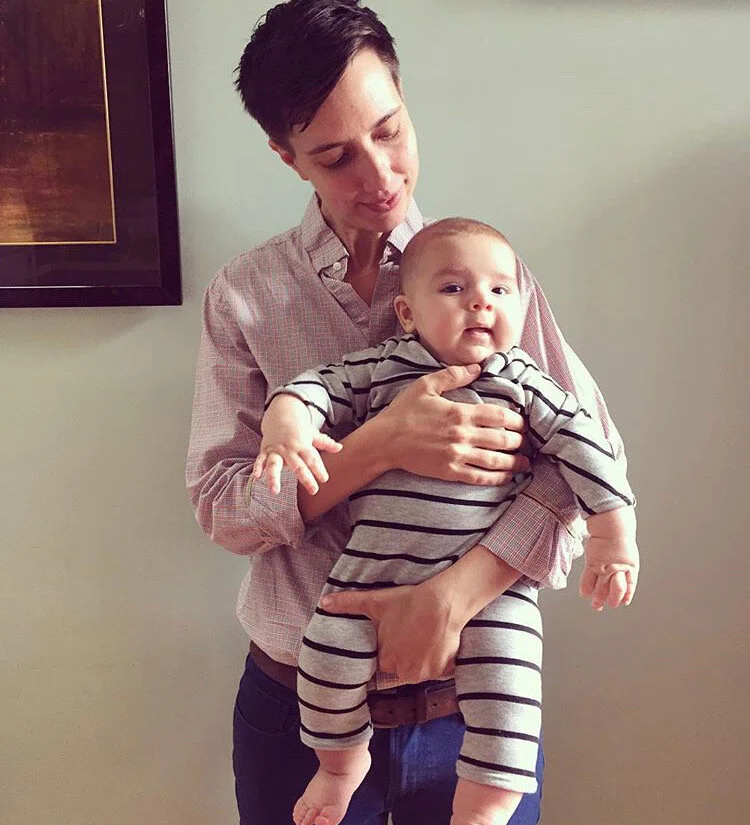In Your Own Words - Elise Schuster
Elise Schuster MPH, is a sexuality educator with 15 years of experience in pleasure-based sex education and youth development. Elise is the co-founder and CEO of OkaySo, an online platform that is revolutionizing sex ed by connecting young adults to experts they can't reach any other way. We connected with Elise to hear the lowdown on their experience starting as family as part of a non-binary partnership.
When you and your partner decided to start a family did you know that you wanted to carry the baby right away?
Not at all. Like at all. I’d always assumed I would adopt. I had absolutely no desire to be pregnant or give birth. Then, my partner decided they really wanted a biological child but they were unable to carry, so that left me. It took me a long time to decide that I was ready (and even then I had a lot of worries about how I was going to feel throughout the whole experience).
What was your experience like finding a medical team that was supportive and LGBTQ friendly?
It took me a couple of tries. I remember calling a birth center and asking the person who answered the phone how often they worked with LGBT couples. They were shocked by my question and couldn’t even say LGBT without stumbling. So I knew that was a no go. I ended up asking my community and found a practice that was amazing. My first appointment was the first time an OB had ever not assumed my gender identity or the identity of my partner and I felt like I’d come home.
What do you wish you knew about pregnancy and postpartum that no one told you?
I could write a book about that topic. The biggest theme for me is that it’s different for everyone and that there’s no wrong way to experience it. You can read all the books but then you’ll be in your body with your life experiences and your baby and it will be what it is. Being a parent is often about letting go of the expectations we have: for who we’ll be as a parent; for who our kid will be; for what is going to happen that day; for what is going to happen in the next two minutes. Pregnancy and postpartum are a chance to start the practice of letting go. Let go of how you think you’re supposed to feel, what you think you should eat or wear, even how you think you should move and be with whatever is happening.
My postpartum experience was… intense. I delivered an 11-pound baby vaginally and so my body had gone through a lot of trauma. I wish I’d known how essential having help would be, and I wish I’d seen a pelvic floor physical therapist sooner. For practical tips this is my number one. Go see a pelvic floor PT during pregnancy. And then go back when they tell you to. And do what they tell you to in between.
How can we improve the journey and care of LGBTQ families?
We need more providers who are trained to be competent in caring for LGBT families. They need to know how not to make assumptions, how to ask for pronouns, how to navigate the additional challenges LGBT families may face. From doulas to OBs to midwives to labor and delivery nurses there’s a lot of training that needs to happen.
I’d also love to see more ways for LGBT families to find support with each other. I’m part of an amazing parenting group - parenting groups can easily become toxic and judgmental, but I’ve been a part of this one for almost four years and it has remained a supportive and open community, filled with many different types of families, which makes it all the more enriching to be a part of.
Anything else you would like to share or that we didn’t ask?
Yes! If you have friends who have had kids and seem like people who would be able to be supportive, ask them ahead of time if they’ll check in with you during the first couple of months postpartum. You can even figure out ahead of time how often you want them to check in. It can be as simple as a quick text message - nothing elaborate. In the chaos of a new baby, especially if you don’t have a lot of in person help, having someone you know you can count on, who will be reaching out to you even if you’re too tired to remember they’re there, can make a huge difference.

